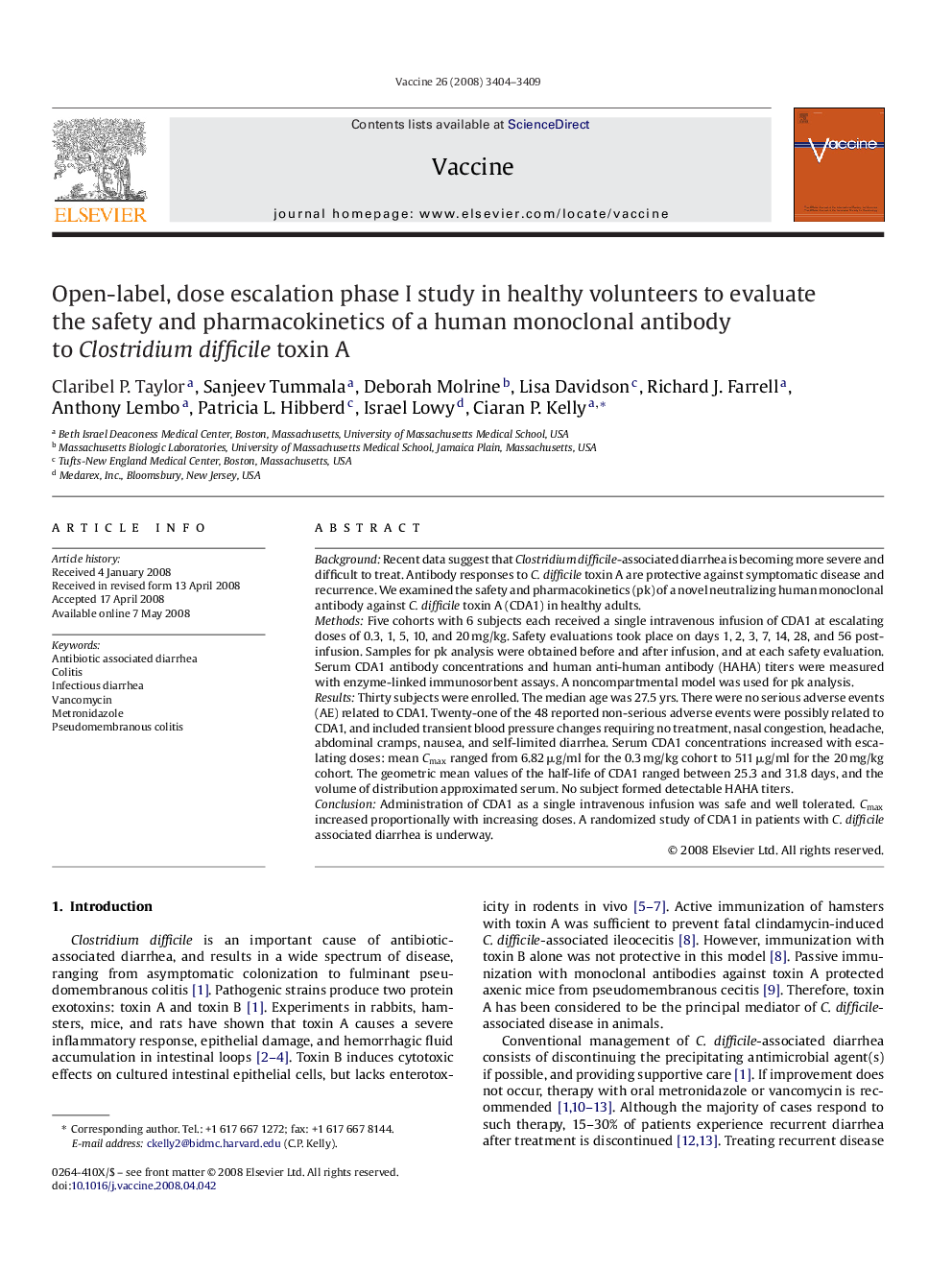| Article ID | Journal | Published Year | Pages | File Type |
|---|---|---|---|---|
| 2408132 | Vaccine | 2008 | 6 Pages |
BackgroundRecent data suggest that Clostridium difficile-associated diarrhea is becoming more severe and difficult to treat. Antibody responses to C. difficile toxin A are protective against symptomatic disease and recurrence. We examined the safety and pharmacokinetics (pk) of a novel neutralizing human monoclonal antibody against C. difficile toxin A (CDA1) in healthy adults.MethodsFive cohorts with 6 subjects each received a single intravenous infusion of CDA1 at escalating doses of 0.3, 1, 5, 10, and 20 mg/kg. Safety evaluations took place on days 1, 2, 3, 7, 14, 28, and 56 post-infusion. Samples for pk analysis were obtained before and after infusion, and at each safety evaluation. Serum CDA1 antibody concentrations and human anti-human antibody (HAHA) titers were measured with enzyme-linked immunosorbent assays. A noncompartmental model was used for pk analysis.ResultsThirty subjects were enrolled. The median age was 27.5 yrs. There were no serious adverse events (AE) related to CDA1. Twenty-one of the 48 reported non-serious adverse events were possibly related to CDA1, and included transient blood pressure changes requiring no treatment, nasal congestion, headache, abdominal cramps, nausea, and self-limited diarrhea. Serum CDA1 concentrations increased with escalating doses: mean Cmax ranged from 6.82 μg/ml for the 0.3 mg/kg cohort to 511 μg/ml for the 20 mg/kg cohort. The geometric mean values of the half-life of CDA1 ranged between 25.3 and 31.8 days, and the volume of distribution approximated serum. No subject formed detectable HAHA titers.ConclusionAdministration of CDA1 as a single intravenous infusion was safe and well tolerated. Cmax increased proportionally with increasing doses. A randomized study of CDA1 in patients with C. difficile associated diarrhea is underway.
